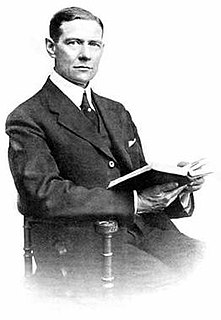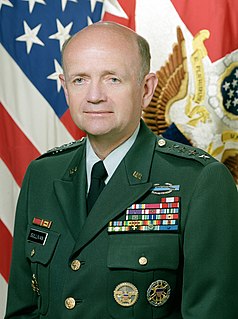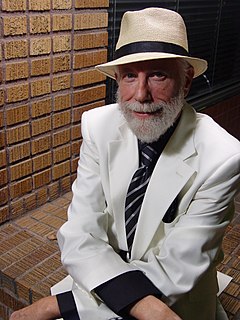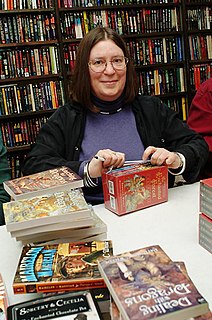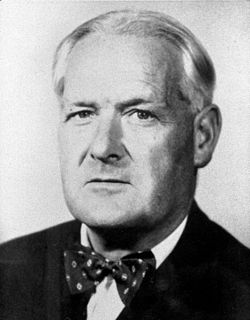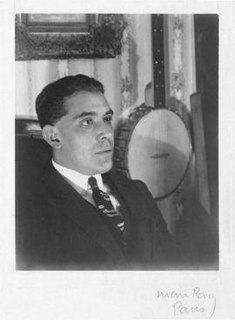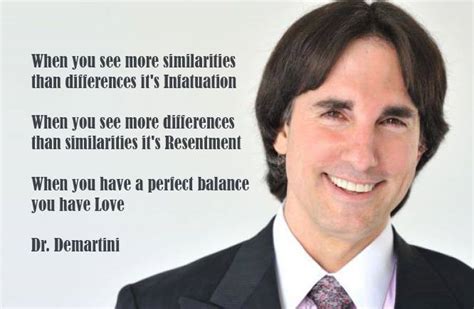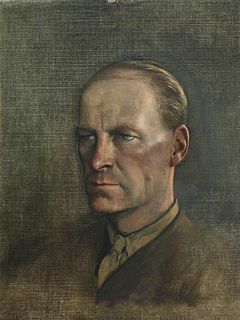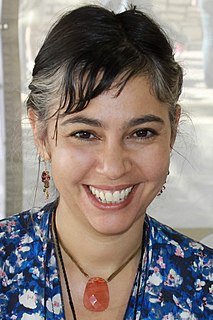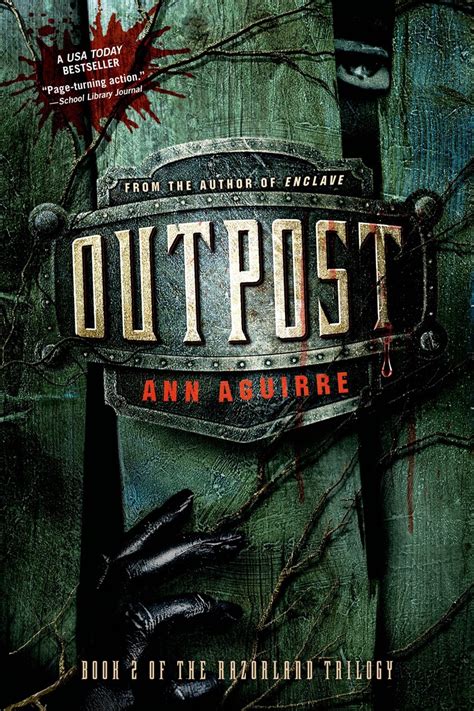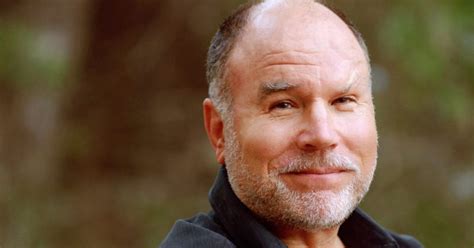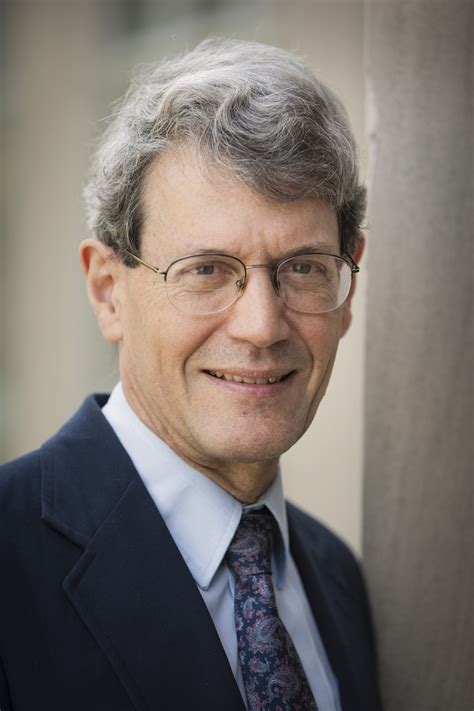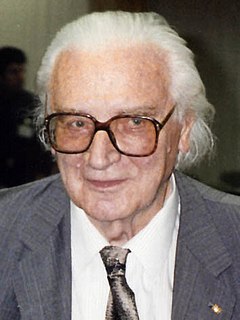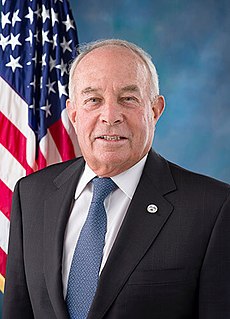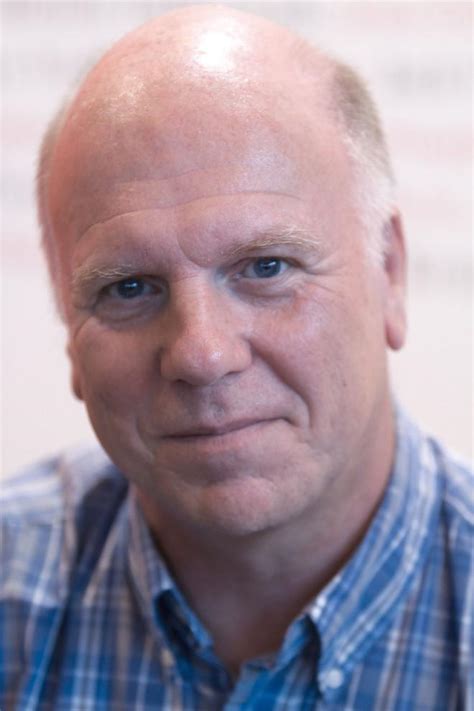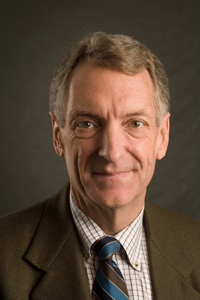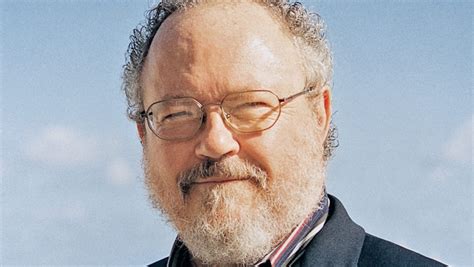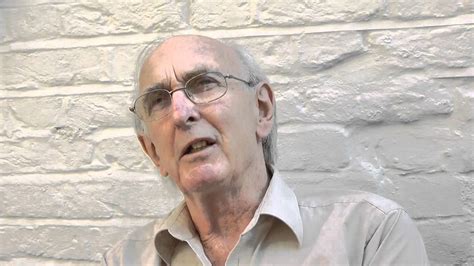Top 355 Incomplete Quotes & Sayings - Page 6
Explore popular Incomplete quotes.
Last updated on April 17, 2025.
Later, I would realize that the position of most black students in predominantly white colleges was already too tenuous, our identities too scrambled, to admit to ourselves that our black pride remained incomplete. And to admit our doubt and confusion to whites, to open up our psyches to general examination by those who had caused so much of the damage in the first place, seemed ludicrous, itself an expression of self-hatred - for there seemed no reason to expect that whites would look at our private struggles as a mirror into their own souls, rather than yet more evidence of black pathology.
As I drift back into sleep, I can't help thinking that it's a wonderful thing to be right about the world. To weigh the evidence, always incomplete, and correctly intuit the whole, to see the world in a grain of sand, to recognize its beauty, its simplicity, its truth. It's as close as we get to God in this life, and reside in the glow of such brief flashes of understanding, fully awake, sometimes for two or three seconds, at peace with our existence. And then back to sleep we go.
Love is an immortal wound that cannot be closed up. A person loses something, a part of her soul, when she loves someone. And she goes about looking for that lost part of her soul, for she knows that otherwise she is incomplete and cannot be at rest. It is only when she is with the person she loves that she becomes complete again in herself; but the moment he leaves, she loses that part which he has taken with him and knows no rest till she has found him once more.
I feel very strongly that I am under the influence of things or questions which were left incomplete and unanswered by my parents and grandparents and more distant ancestors. It often seems as if there were an impersonal karma within a family which is passed on from parents to children. It has always seemed to me that I had to answer questions which fate had posed to my forefathers, and which had not yet been answered, or as if I had to complete, or perhaps continue, things which previous ages had left unfinished.
Life is very full of sex, or should be. As much as I admire Tolkien - and I do, he was a giant of fantasy and a giant of literature, and I think he wrote a great book that will be read for many years - you do have to wonder where all those Hobbits came from, since you can't imagine Hobbits having sex, can you? Well, sex is an important part of who we are. It drives us, it motivates us, it makes us do sometimes very noble things and it makes us do sometimes incredibly stupid things. Leave it out, and you've got an incomplete world.
all through my childhood, my father kept from me the knowledge that the daily papers printed daily box scores, allowing me to believe that without my personal renderings of all those games he missed while he was at work, he would be unable to follow our team in the only proper way a team should be followed, day by day, inning by inning. In other words, without me, his love for baseball would be forever incomplete.
What is the result of our investigation of the Moslem idea of God? Is the statement of the Koran true, "Your God and our God is the same"? In as far as Moslems are monotheists and in as far as Allah has many of the attributes of Jehovah we cannot put Him with the false gods. But neither can there be any doubt that Mohammed's conception of God is inadequate, incomplete, barren and grievously distorted. It is vastly inferior to the Christian idea of the Godhead and also inferior to the Old Testament idea of God.
A scientist strives to understand the work of Nature. But with our insufficient talents as scientists, we do not hit upon the truth all at once. We must content ourselves with tracking it down, enveloped in considerable darkness, which leads us to make new mistakes and errors. By diligent examination, we may at length little by little peel off the thickest layers, but we seldom get the core quite free, so that finally we have to be satisfied with a little incomplete knowledge.
We [may] answer the question: "Why is snow white?" by saying, "For the same reason that soap-suds or whipped eggs are white"-in other words, instead of giving the reason for a fact, we give another example of the same fact. This offering a similar instance, instead of a reason, has often been criticised as one of the forms of logical depravity in men. But manifestly it is not a perverse act of thought, but only an incomplete one. Furnishing parallel cases is the necessary first step towards abstracting the reason imbedded in them all.
When we're incomplete, we're always searching for somebody to complete us. When, after a few years or a few months of a relationship, we find that we're still unfulfilled, we blame our partners and take up with somebody more promising. This can go on and on - series polygamy - until we admit that while a partner can add sweet dimension to our lives, we, each of us, are responsible for our own fulfillment. Nobody else can provide it for us, and to believe otherwise is to delude ourselves dangerously and to program for eventual failure every relationship we enter.
People are saying that they want be convinced [about global warming], perfectly. They want to know the climate science projections with 100 per cent certainty. Well, we know a great deal and even with that there is still uncertainty. But the trend line is very clear. We never have 100 per cent certainty. We never have it. If you wait till you have 100 per cent certainty, something bad is going to happen on the battlefield. That's something we know. You have to act with incomplete information. You have to act based on the trend line.
It is the profoundest of cosmic ironies. The divine power, our true spiritual essence, does not achieve perfection until it hits the 'rock' bottom of the cosmos - the dense and crude earth. It remains imperfect until the moment of entombment for the simple reason that until that dark nadir is reached the experiential adventure of existence remains incomplete, and Self is not yet endowed with the entire spectrum of the light of consciousness - from spirit to matter - from the highest high to the lowest low.
Obviously, a man's judgement cannot be better than the information on which he has based it. Give him the truth and he may still go wrong when he has the chance to be right, but give him no news or present him only with distorted and incomplete data, with ignorant, sloppy or biased reporting, with propaganda and deliberate falsehoods, and you destroy his whole reasoning processes, and make him something less than a man.
I don't think we have all the words in a single vocabulary to explain what we are or why we are. I don't think we have the range of emotion to fully feel what someone else is feeling. I don't think any of us can sit in judgment of another human being. We're incomplete creatures, barely scraping by. Is it possible--from the perspective of this quickly spinning Earth and our speedy journey from crib to coffin--to know the difference between right, wrong, good, and evil? I don't know if it's even useful to try.
I don't view it as mystic. I believe that God is our father. He created us. He is powerful because he knows everything. Therefore everything I learn that is true makes me more like my father in heaven. When science seems to contradict religion, then one, the other, or both are wrong, or incomplete. Truth is not incompatible with itself. When I benefit from science it's actually not correct for me to say it resulted from science and not from God. They work in concert.
Given our inevitably incomplete knowledge about key structural aspects of our ever-changing economy and the sometimes asymmetric costs or benefits of particular outcomes, a central bank... need to consider not only the most likely future path for the economy but also the distribution of possible outcomes about that path. They then need to reach a judgment about the probabilities, costs, and benefits of the various possible outcomes under alternative choices for policy.
To see something marvelous with your own eyes-that's wonderful enough. But when two of you see it, two of you together, holding hands, holding each other close, knowing that you'll both have that memory for the rest of your lives, but that each of you will only ever hold only have an incomplete half of it, and that it won't ever really exist as a whole until you're together, talking or thinking about that moment ...that's worth more than one plus one. It's worth four, or eight, or some number so large we can't even imagine it.
This is the most important lesson you must learn about magic," Miss Ochiba went on. "There are many ways of seeing. Each has an element of truth, but none is the whole truth. If you limit yourselves to one way of seeing, one truth, you will limit your power. You will also place limits on the kinds of spells you can cast, as well as their strength. To be a good magician, you must see in many ways. You must be flexible. You must be willing to learn from different sources. And you must always remember that the truths you see are incomplete.
Among other grand achievements, F. A. Hayek had a remarkable career pointing out the flaws in collectivism. One of his keenest insights was that, paradoxically, any collectivist system necessarily depends on one individual (or small group) to make key social and economic decisions. In contrast, a system based on individualism takes advantage of the aggregate, or 'collective,' information of the whole society; through his actions each participant contributes his own particular, if incomplete, knowledge-information that could never be tapped by the individual at the head of a collectivist state.
Nature without learning is like a blind man; learning without Nature, like a maimed one; practice without both, incomplete. As in agriculture a good soil is first sought for, then a skilful husbandman, and then good seed; in the same way nature corresponds to the soil, the teacher to the husbandman, precepts and instruction to the seed.
Has the word propitiation any place in your Christianity? In the faith of the New Testament it is central. The love of God, the taking of human form by the Son, the meaning of the cross, Christ's heavenly intercession, the way of salvation-all are to be explained in terms of itand any explanation from which the thought of propitiation is missing will be incomplete, and indeed actually misleading, by New Testament standards
If we are not personally engaged in God's great mission in the world, then we have missed the very thing he created us to do. We are like birds meant to fly but living in a cage; fish meant to swim but floundering on the beach. It makes sense when you think about it. If the Author of the universe created us to play a key role in his unfolding drama but we have failed to find our place in that story, then of course we would feel incomplete.
Our measure of rewards and punishments is most partial and incomplete, absurdly inadequate, utterly worldly; and we wish to continue it into the next world. Into that next and awful world we strive to pursue men, and send after them our impotent paltry verdicts of condemnation or acquittal. We set up our paltry little rod to measure heaven immeasurable.
The fact is that the beautiful, humanly speaking, is merely form considered in its simplest aspect, in its most perfect symmetry, in its most entire harmony with our make-up. Thus the ensemble that it offers us is always complete, but restricted like ourselves. What we call the ugly, on the contrary, is a detail of a great whole which eludes us, and which is in harmony, not with man but with all creation. That is why it constantly presents itself to us in new but incomplete aspects.
To find the point where hypothesis and fact meet; the delicate equilibrium between dream and reality; the place where fantasy and earthly things are metamorphosed into a work of art; the hour when faith in the future becomes knowledge of the past; to lay down one's power for others in need; to shake off the old ordeal and get ready for the new; to question, knowing that never can the full answer be found; to accept uncertainties quietly, even our incomplete knowledge of God; this is what man's journey is about, I think.
All scientific work is incomplete - whether it be observational or experimental. All scientific work is liable to be upset or modified by advancing knowledge. That does not confer upon us a freedom to ignore the knowledge we already have, to postpone action that it appears to demand at a given time. Who knows, asks Robert Browning, but the world may end tonight? True, but on available evidence most of us make ready to commute on the 8:30 next day.
Painting for me is like a fabric, all of a piece and uniform, with one set of threads as the representational, esthetic element, and the cross-threads as the technical, architectural, or abstract element. These threads are interdependent and complementary, and if one set is lacking the fabric does not exist. A picture with no representational purpose is to my mind always an incomplete technical exercise, for the only purpose of any picture is to achieve representation.
I don't care if you're a parent giving to a child, a worker to a company, or a romantic to a lover, this behavior eventually leads to resentment. There's always a hidden agenda of What's in it for me? It's often suppressed, and this is why sacrifice is ultimately unwise and incomplete. Does this mean that there's no such thing as altruism, philanthropy, or generosity? No, it just means that anytime these exist, so do egocentricity, misanthropy, and greed. There's always a balancing force, even if it's sometimes hidden or unconscious.
Overt intelligent performances are not clues to the workings of minds; they are those workings. Boswell described Johnson's mind when he described how he wrote, talked, ate, fidgeted and fumed. His description was, of course, incomplete, since there were notoriously some thoughts which Johnson kept carefully to himself and there must have been many dreams, daydreams and silent babblings which only Johnson could have recorded and only a James Joyce would wish him to have recorded.
My path to poetry was slow and meandering. When I eventually found my way to graduate school at 29, making a life as a poet seemed like a bohemian fantasy. But maybe my zigzagging trajectory is just an excuse for tardiness, when fear is really the root of any reason I might give. My perfectionism and pace are certainly driven by fear that a poem is imperfect or incomplete. More significantly, my struggle to fully dedicate myself to poetry was a fear of failure.
You can live without me." "I don't want to." I feared a love like this - that made us incomplete without each other. It was beautiful but treacherous, like snow that looked white and pure and lovely from the safety of your window, but when you stepped out to touch the softness, the cold first stole your breath, and then your will to move, until you could just lay down in it and let the numbness take you. yet I didn't want to be without him either, so I didn't chide him for the statement.
It is when physicians are bogged down by their incomplete technologies, by the innumerable things they are obliged to do in medicine when they lack a clear understanding of disease mechanisms, that the deficiencies of the health-care system are most conspicuous. If I were a policy-maker, interested in saving money for health care over the long haul, I would regard it as an act of high prudence to give high priority to a lot more basic research in biologic science.
It is true that of far the greater part of things, we must content ourselves with such knowledge as description may exhibit, or analogy supply; but it is true likewise, that these ideas are always incomplete, and that at least, till we have compared them with realities, we do not know them to be just. As we see more, we become possessed of more certainties, and consequently gain more principles of reasoning, and found a wider base of analogy.
It is immature and lazy to imagine we know everything there is to know about someone before we know that someone. We don't know their stories, their histories, their real live human feelings. We don't know their favorite movies and best memories and what makes them afraid. It is unfair to take one fact, one thing they've said or we heard they said, or one thing they wrote, or someone else's experience, or a group they identify with and make a character sketch. If people did that to us, the picture would be so woefully incomplete, we wouldn't even recognize our own description.
Our sadness won’t be of the searing kind but more like a blend of joy and melancholy: joy at the perfection we see before us, melancholy at an awareness of how seldom we are sufficiently blessed to encounter anything of its kind. The flawless object throws into perspective the mediocrity that surrounds it. We are reminded of the way we would wish things always to be and of how incomplete our lives remain.
The incomplete knowledge of a system must be an essential part of every formulation in quantum theory. Quantum theoretical laws must be of a statistical kind. To give an example: we know that the radium atom emits alpha-radiation. Quantum theory can give us an indication of the probability that the alpha-particle will leave the nucleus in unit time, but it cannot predict at what precise point in time the emission will occur, for this is uncertain in principle.
We need to see, and agree that what we seek already lives within us, and we within it. Now we know our one great task: watch for whatever promises us freedom, and then quietly, consciously refuse to see ourselves through the eyes of what we know is incomplete. Then we live wholeness itself, instead of spending our lives looking for it.
Sometimes differences arise partly from incomplete information. We are finite. And we should admit that there are cases of uncertainty. But often the differences become exacerbated because of sinful inclinations underneath the surface, which incline us to prefer our own ideas and not to submit to what is less comfortable. We must be cautious about accusing anyone else of sin. We don't know people's hearts. But we must also avoid being naïve about the subtlety of sin and the corrupting effects of sin on the mind - our own minds, not only the mind of the other fellow.
At the core, there is one simple, overarching reason why so many people remain unsatisfied in their work and why most organisations fail to draw out the greatest talent, ingenuity, and creativity of their people and never become truly great, enduring organisations. It stems from an incomplete paradigm of who we are - our fundamental view of human nature. The fundamental reality is, human beings are not things needing to be motivated and controlled; they are four-dimensional - body, mind, heart, and spirit.
Most professionals specialize in only part of the complex community revitalization process. Incomplete efforts usually create messy, expensive, demoralizing failures. Few specialists understand how to bring a place back to life with a holistic approach. If anyone understands the complete revitalization process, it's Storm Cunningham. He's spent over a decade rigorously studying successes and failures worldwide. He can look at a community, regional, or organizational regeneration or redevelopment process, and quickly spot what's wrong...what's missing.
We absolutely must leave room for doubt or there is no progress and there is no learning. There is no learning without having to pose a question. And a question requires doubt. People search for certainty. But there is no certainty. People are terrified — how can you live and not know? It is not odd at all. You only think you know, as a matter of fact. And most of your actions are based on incomplete knowledge and you really don’t know what it is all about, or what the purpose of the world is, or know a great deal of other things. It is possible to live and not know.
God reproduces and lives out His image in millions of ordinary people like us. It is a supreme mystery. We are called to bear that image as a Body because any one of us taken individually would present an incomplete image, one partly false and always distorted, like a single glass chip hacked from a mirror. But collectively, in all our diversity, we can come together as a community of believers to restore the image of God in the world.
We can speak of politics, ethics, and in this way, speak about the world. But at the same time, it's always in a way that is totally nebulous and abstracted, this way of thinking about reality. And that's why I write the way I do - it's an almost immortal way to show dependence on the biological, the political, the moral parts of us. I say immortal because we now have to find new formats, new eloquences, and resolve within ourselves this "constructed" life, a life that is incomplete, imperfect.
Of course, we knew that the official reports were sketchy, if not falsified. But, in terms of information theory, this is precisely where the problem lay: How were we to reconstruct reality from incomplete or false reports? It is not true that virtually all news in a totalitarian state is false. On the contrary, most news is completely correct, albeit tendentiously slanded; it is just that certain information is suppressed. One can adjust for the political slanting of the news, but there is virtually no way to fill in the omissions.
Each of us has a Soul. But no one has stopped to tell us what the Soul is in the world to do. Or if they have told us, they've given us incomplete information - for example, that our job is to get back to God. That is not our job. We couldn't get back to God if we wanted to, because we never left God.
In Lords of Rainbow I start out by taking away color from the world, and in the process show color's vital place in our lives. At least I hope that by the end of the book it's a portion of what the reader comes away with - a sense of how much color perception enriches our lives and how its lack can make our sensory experience incomplete.
You don't realize that if you stop looking backwards craving the love and acceptance which you didn't receive from your parents, then you might open your eyes to what is available for you now. But you won't let go. If only you could see that looking back into an incomplete and imperfect past, with regret, blame, guilt or resentment is keeping you from the treasures that await you here now. The past has gone. You cannot rectify something that is no longer with you.
Most of the crackpot papers which are submitted to The Physical Review are rejected, not because it is impossible to understand them, but because it is possible. Those which are impossible to understand are usually published. When the great innovation appears, it will almost certainly be in a muddled, incomplete and confusing form. To the discoverer himself it will be only half-understood; to everybody else it will be a mystery. For any speculation which does not at first glance look crazy, there is no hope.
A doctor's authority in America often exceeds his or her knowledge. Whole bodies of knowledge in healing are ignored because they are unorthodox and non-medical. A doctor's education seems exhaustive, yet MDs study so much about drugs and surgery - and so little about nutrition, fasting, herbal remedies, spinal manipulation, massage, vitamin and mineral therapy, homeopathy, and more - that we realize their qualifications are incomplete.
I like newspaper stories that are incomplete, that give me room to imagine the rest. It's no good to me reading about something that's all neatly solved and wrapped up. That's why so many of my stories revolve around human psychology, around why someone commits a certain crime, or series of crimes. I don't profess to know the answers but I like to explore the possibilities.
Sometimes HR transformations have been definitions. Just because someone does an e-HR system or puts in a new talent system or changes the HR function does not mean an HR transformation has occurred. We identified four phases of HR transformation. Missing any of the four phases would be an incomplete effort.
Spaces devoted to Hannibal Lecter’s earliest years differ from the other archives in being incomplete. Some are static scenes, fragmentary, like painted attic shards held together by blank plaster. Other rooms hold sound and motion, great snakes wrestling and heaving in the dark and lit in flashes. Pleas and screaming fill some places on the grounds where Hannibal himself cannot go. But the corridors do not echo screaming, and there is music if you like.
The entire hominid collection known today would barely cover a billiard table, ... the collection is so tantalizingly incomplete, and the specimens themselves often so fragmented and inconclusive, that more can be said about what is missing than about what is present. ...but ever since Darwin's work inspired the notion that fossils linking modern man and extinct ancestor would provide the most convincing proof of human evolution, preconceptions have led evidence by the nose in the study of fossil man.






